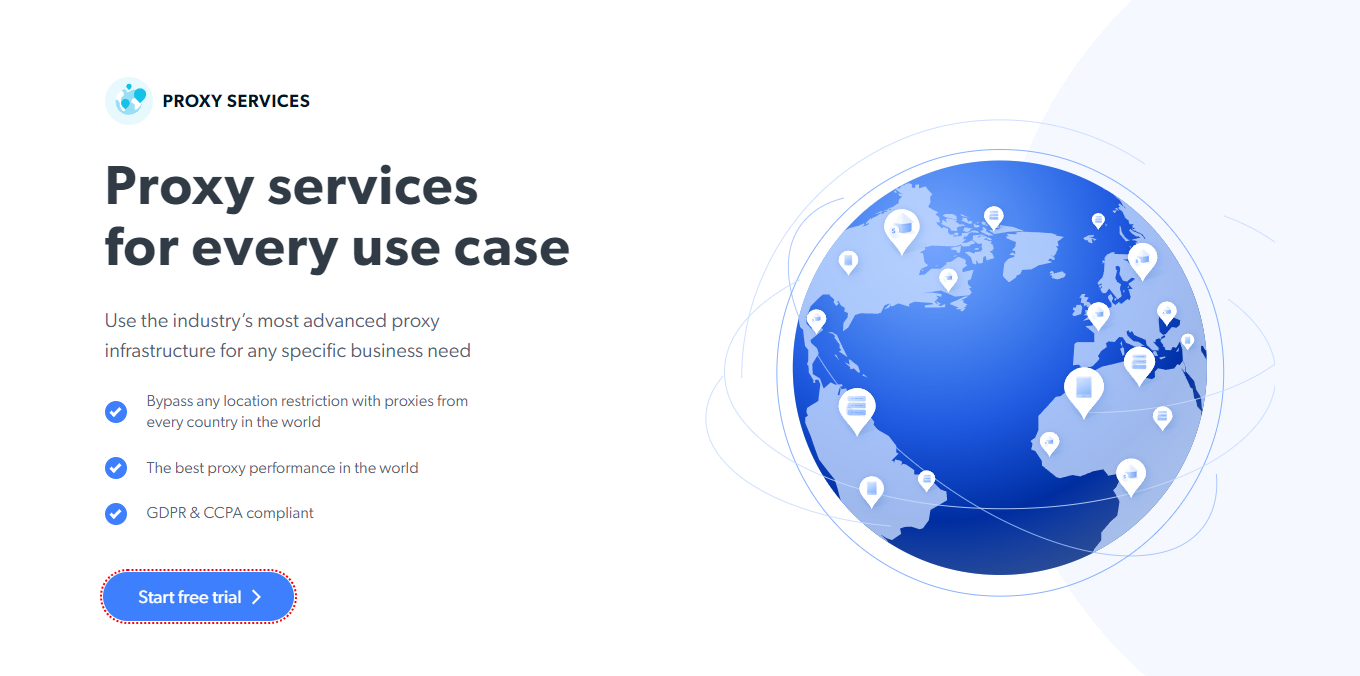 Proxy services are online tools that allow users to browse the internet more privately and securely. A proxy server acts as an intermediary between your device and the internet, intercepting your requests and relaying them to the appropriate website or service. The website or service only sees the IP address of the proxy server, not your own IP address. This can provide a layer of anonymity and can help prevent third parties from tracking your online activities. Additionally, some proxy services can help users bypass geo-restrictions and censorship, allowing them to access content that might be blocked in their location. However, it’s important to choose a reputable and secure proxy service to ensure your online privacy and security.
Proxy services are online tools that allow users to browse the internet more privately and securely. A proxy server acts as an intermediary between your device and the internet, intercepting your requests and relaying them to the appropriate website or service. The website or service only sees the IP address of the proxy server, not your own IP address. This can provide a layer of anonymity and can help prevent third parties from tracking your online activities. Additionally, some proxy services can help users bypass geo-restrictions and censorship, allowing them to access content that might be blocked in their location. However, it’s important to choose a reputable and secure proxy service to ensure your online privacy and security.
Contents
- 1 The Pros and Cons of Using Proxy Services for Online Privacy and Security
- 2 The Risks of Using Free or Unsecured Proxy Services
- 3 Protecting Your Privacy with Proxy: What to Look For
- 4 How Proxy Services Affect Your Online Security: Risks and Threats
- 5 Tips for Using Proxy Safely and Securely
- 6 Conclusion: The Future of Proxy Services and Online Privacy
The Pros and Cons of Using Proxy Services for Online Privacy and Security
Using proxy services for online privacy and security can have both pros and cons. On the one hand, these services can help protect your privacy by masking your IP address and encrypting your internet traffic. This can make it more difficult for third parties to track your online activities. On the other hand, some proxy services may log your online activities or even sell your data to advertisers. Additionally, using a proxy server can sometimes slow down your internet connection, making it more difficult to access certain websites or applications. It’s important to weigh these pros and cons when deciding whether to use a proxy service.
The Risks of Using Free or Unsecured Proxy Services
Using free or unsecured proxy services can pose serious risks to your online privacy and security. Many free proxy services are supported by advertising, which means they may collect and sell your data to third parties for targeted advertising purposes. Additionally, some free or unsecured proxy services may be operated by malicious actors who use them to intercept and modify your traffic, potentially exposing you to malware or other security threats. For these reasons, it’s important to choose a reputable and secure proxy service, even if it means paying a fee. By doing so, you can minimize the risk of data breaches and other security threats.
Protecting Your Privacy with Proxy: What to Look For
To protect your online privacy with a proxy service, it’s important to look for a service that does not log your online activities or sell your data to third parties. Additionally, choose a service with strong encryption and secure servers to minimize the risk of data breaches. It’s also important to choose a reputable and established service with a track record of protecting user privacy.
How Proxy Services Affect Your Online Security: Risks and Threats
While proxy services can protect your privacy online, they can also introduce security risks that should be considered. One of the main risks is that your online traffic passes through an intermediary server, which can be a potential target for hackers and other malicious actors. Additionally, some proxy services may modify your traffic, potentially introducing security vulnerabilities or exposing you to malware. Finally, using a proxy service can sometimes slow down your internet connection, making it more difficult to detect and respond to security threats. For these reasons, it’s important to choose a secure and reputable proxy service and use additional security measures like anti-malware software to minimize your risk of online threats.
More from us:
- Benefits of a VPN you might not know about in 2023
- What Is a VPN? Your Personal Guide
- Is it worth it to go from a free VPN to a premium VPN?
Tips for Using Proxy Safely and Securely
To use a proxy service safely and securely, there are several tips to keep in mind. First, choose a reputable and secure service with a track record of protecting user privacy. Look for services that use strong encryption and secure servers to minimize the risk of data breaches. Additionally, be wary of free proxy services, as they may be less secure and more likely to sell your data to third parties. Finally, it’s a good idea to use additional security measures like anti-malware software to protect your device from potential threats. By following these tips, you can use a proxy service to protect your online privacy and security with confidence.
Conclusion: The Future of Proxy Services and Online Privacy
In conclusion, the use of proxy services is likely to continue growing as people seek to protect their online privacy and security. As the internet becomes more complex and security threats become more sophisticated, it will be increasingly important to choose secure and reputable services. Additionally, advances in technology and encryption are likely to lead to more innovative and effective proxy services in the future, providing users with even stronger protection against online threats.






